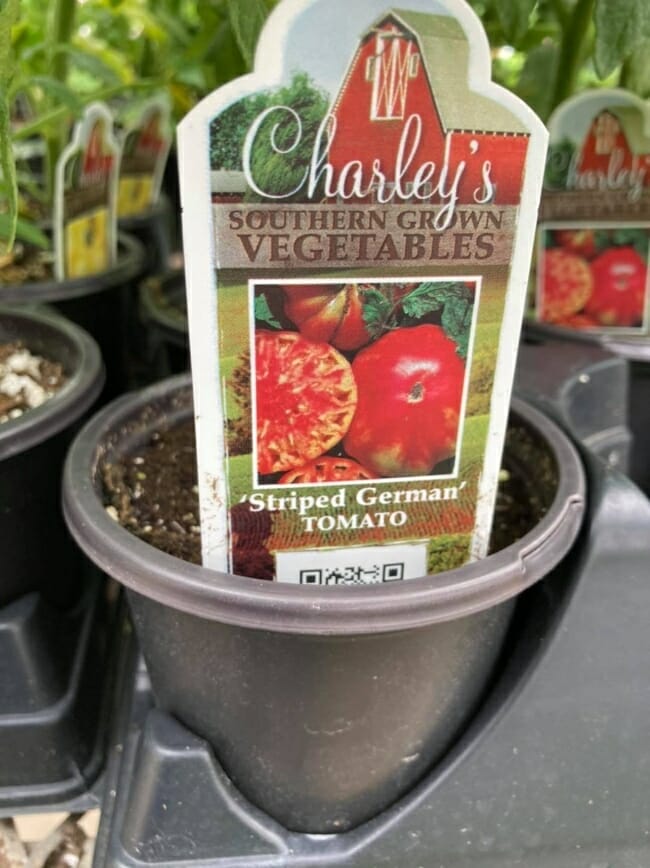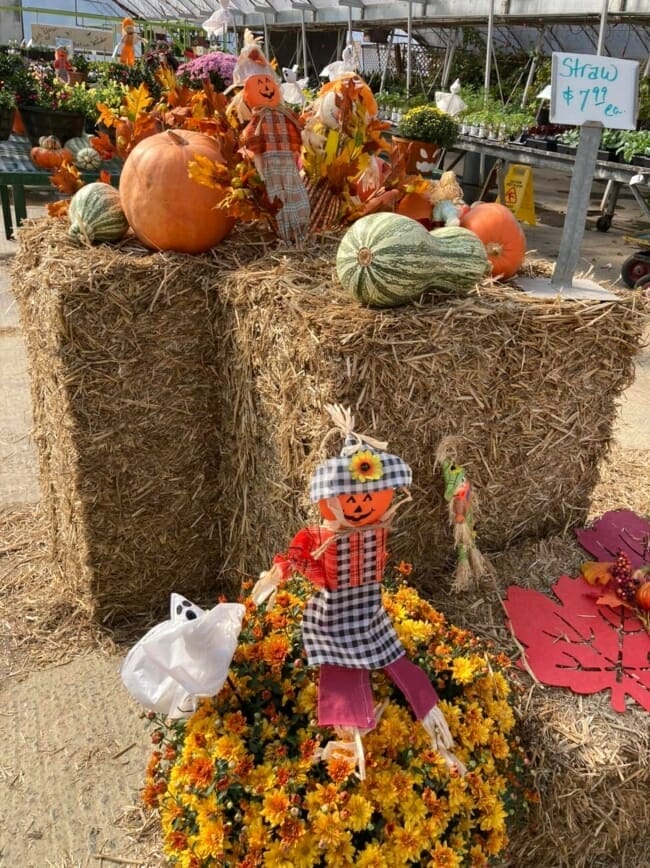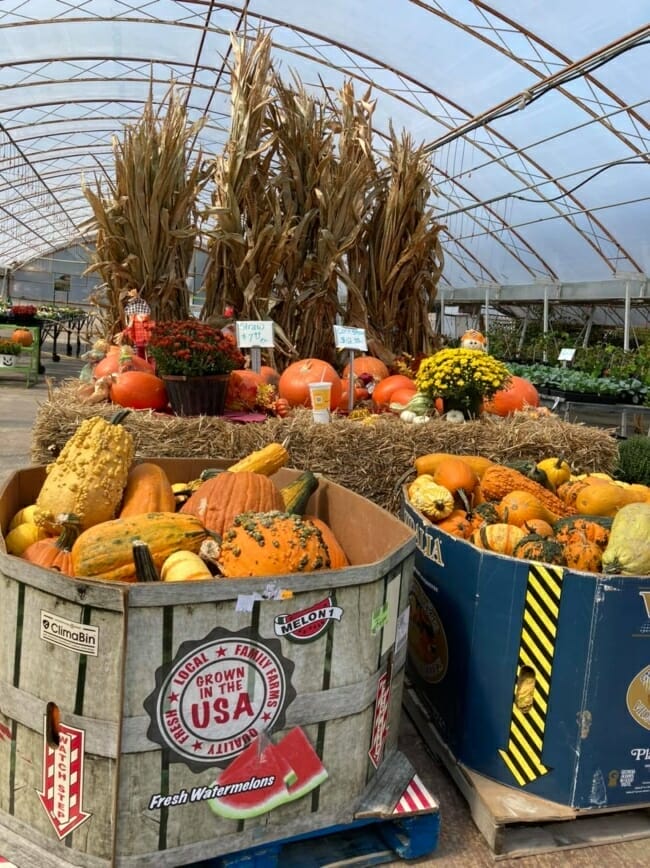

Uh oh...
It appears that you're using a severely outdated version of Safari on Windows. Many features won't work correctly, and functionality can't be guaranteed. Please try viewing this website in Edge, Mozilla, Chrome, or another modern browser. Sorry for any inconvenience this may have caused!
Read More about this safari issue.

When Paul and Charles Parks started brainstorming ways to improve their vegetable crops in the early 1960s, they couldn’t have imagined their actions would lead to a family business that’s become a premier wholesale greenhouse in Arkansas. They simply wanted hardier tomato transplants.

Tomato Transplants and Seedlings
The Parks brothers were row crop vegetable farmers in the 1960s, where they farmed their family land in Van Buren. They decided to grow their own tomato transplants in a greenhouse to produce hardier transplants at a lower cost. In 1964, they did just that. They built a wooden greenhouse from scrap lumber and produced tomato plants. When the fields were ready, they transported this first greenhouse crop, and the plants did so well, the brothers continued to grow seedlings. Their neighbors also took notice and began purchasing transplants from the Parks Brothers instead of from dealers. Then came an off-handed suggestion from a seed supplier impressed by the brothers’ greenhouse efforts. Why didn’t they try growing petunias for the commercial plant market?

Expansion
The Parks brothers began growing petunias, the colorful plants that grace nearly every front yard or flower pot in spring. During the late 1960s and early 1970s, they hand-delivered their greenhouse-grown petunias to local fruit stands in Northwest Arkansas and supplied TG & Y stores in Tulsa and Oklahoma City with their flowers. They also expanded to include begonias, impatiens and other spring flowers. Although they also continued to farm, their small greenhouse business was becoming more and more in demand. They supplied Walmart stores with their plants and expanded their growth into Texas and Louisiana. By 1985, just 20 years after planting their first tomato seedlings, the brothers decided to step away from row farming and focus entirely on the greenhouse business.

The 1980s and 1990s proved to be profitable times for the Parks Brothers Greenhouses. Chain stores like Walmart, K-Mart and others were beginning to sell more plants in their garden centers. A combination of better plant genetics, automation and plastic packaging changed the way plants were produced and marketed.
Market Changes
However, too much of a good thing eventually over-saturated the market. In the late 1990s, the demand for plants stagnated. After enjoying two decades of steady growth, Parks Brothers Greenhouses had to get inventive to survive.
By this time, the second generation of Parks had joined the business. Clay Parks is Paul’s son and is now the general manager of the company. He describes the situation during the early 2000s as “a mature market with minimal growth, or you could say people were disinterested in plants.” Despite a challenging period, the business was able to incorporate some new ideas, slim down, and continue to do well. One focus they never lost was their commitment to raising quality plants and providing great service to their customers.

Parks Brothers Farms Today
Fast forward to 2021, and Parks Brothers Farms provides that great service in two ways: the Parks Brothers Farms Retail Garden Center and Parks Wholesale Plants. The garden center is located in Van Buren and offers greenhouse-grown plants, flowers, herbs and vegetables directly to consumers. You can step into the garden center any time of the year and be greeted by seasonal plants, bedding, shrubs, trees and more.
Parks Wholesale Plants has over 670,000 square feet of production space and 10 acres of outdoor production. They grow hardy wholesale plants and distribute over a 600-mile range to plant nurseries, garden centers and farm stores. They stock stores from Texas, Oklahoma, Kansas, Nebraska, Iowa, Missouri, Arkansas, Louisiana, Tennessee and Alabama.

Fundraising: Plants for Profits
An exciting aspect of Parks Wholesale Plants is their fundraising options for local groups. The business currently offers three types of fundraisers: the sale of mums in the fall, poinsettias for winter and flowering annuals in the spring. The idea for providing fundraisers to nonprofits, school groups and others came from lagging poinsettia sales at Christmastime. Parks Brothers noticed some garden centers were struggling to compete with retail chain stores selling fall plants and Christmas poinsettias. At first, Parks Brothers tried driving business to the stores by conducting fundraisers at these garden centers. Since then, they found that directly marketing to local groups is more successful for both the company and the fundraising groups.
“When we started looking at fundraising, we noticed how much work these kids were doing and how little profits they would generate for the effort spent and saw a big potential for the groups to make some serious cash,” Clay Parks says. “We do a lot of school groups, FFA, cheer, dance, band, etc. Some partners are charitable organizations. We do pretty much anyone who wants to put it together.” Parks Brothers offers their fundraisers through their website, Plants for Profits. Interested groups can choose between fall, winter or spring fundraisers and find out how Parks Brothers can best help their groups.

Pandemic Perks for Parks Brothers
Since the Covid-19 pandemic, Clay Parks has seen a significant uptick in the plant business, which he attributes to people staying home more. People have more time to consider their garden, landscaping and outdoor needs. Parks Brothers works hard every year to provide the most in-demand plants and flowers. “We spend a lot of time on what, how much and when the demand is going to be there. Trends change, and we try to change with it. A lot of material we carry has a short sell window, sometimes ten days,” Clay says. The business tries to raise and sell what’s currently the most profitable in the market.
This fall, Parks Brothers Farms offers plenty of beautiful and hardy fall mums grown in the Van Buren greenhouses, along with pansies, kale, other fall color and fall garden vegetables. They also have pumpkins of all sizes to liven up your porches and fun fall containers to decorate your home. This winter, they’ll carry poinsettias for their wholesale customers and in the garden center as well. If you’re near Van Buren, a trip to Parks Brothers Garden Center is worth the visit. You can browse the beautiful, locally grown plants and find the perfect combination for your garden.

Although Charles Parks passed away in 2020, Paul Parks still works in the family business at 79. The Parks Brothers Farms and Parks Wholesale Plants have grown tremendously since their first greenhouse in 1964, but their commitment to their community and customers is still the same. The greenhouses still grow tomato plants like the original tomato transplants that kickstarted their amazing family business 57 years ago. And it continues to thrive today.
Learn More
Learn more about Parks Wholesale Plants on their website and Parks Brothers Farms and Garden Center on their Facebook page. Don’t forget to consider Plants for Profits for a great, locally-grown fundraiser.
We do the work.
You check your email.
Sign up for our weekly e-news.
Get stories sent straight to your inbox!









Like this story? Read more from Kimberly Mitchell
Eugene Feenberg was a celebrated physicist who saw the rise of Nazism,...
The XXV Winter Olympics concluded this February in Italy, and one of the...
Scott Fitzgerald never forgot the feeling of freedom he got from biking...
Join the Conversation
Leave a Comment